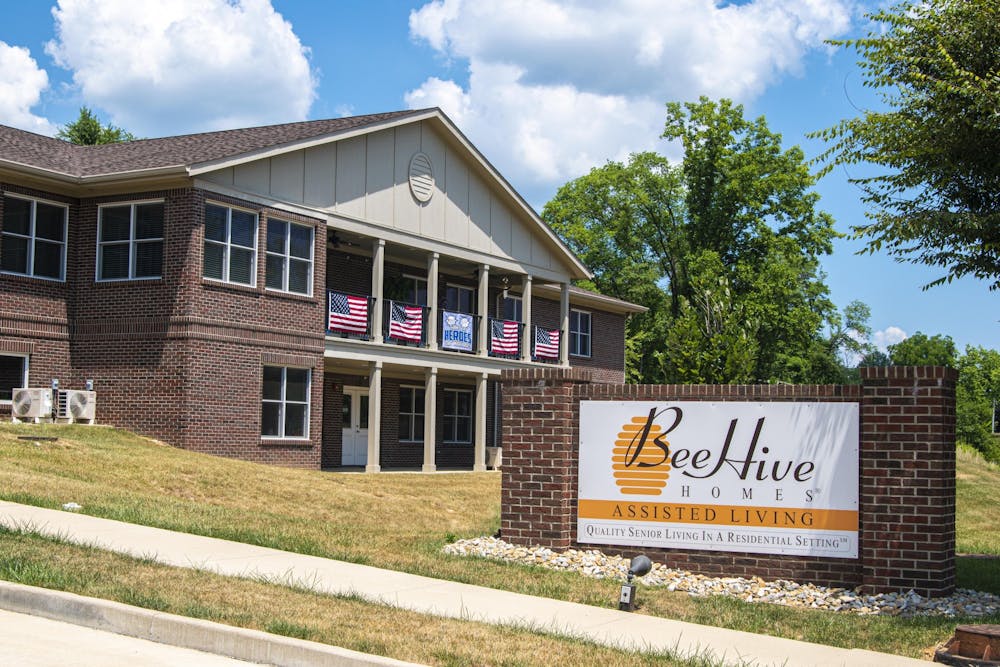The coronavirus pandemic has affected everyone in one way or another, but people with Alzheimer’s disease and dementia are having an especially difficult time adjusting because of lack of socializing.
IU Health Alzheimer’s educator Dayna Thompson said she has noticed a significant increase in need for Alzheimer’s services since people are unable to go out as much to places they routinely go. Thompson said confusion may arise when they diverge from routine, causing them to feel more uncertain and anxious.
“People living with dementia really thrive on routine,” Thompson said. “Some people living with dementia are really not understanding why they can't do what they've always done.”
People with Alzheimer’s in early to moderate stages lost many meaningful things in their life due to the coronavirus, such as being active in the community and seeing family and friends, Thompson said. She said she saw an undertone of grief with her patients due to the absence of human interaction. Thompson said during this time it is important for people living with Alzheimer’s to find an activity in their life that is meaningful to them.
Thompson and other IU Health Alzheimer's staff specialize in support for people living with dementia and their families. This includes emotional support, education programs and community outreach. The coronavirus has forced much of this to go online.
“We had some hurdles with that since a lot of our clients are older and didn't really grow up with technology,” Thompson said. “But they have adapted really well, and I have been very impressed with what they've been willing to try with all these new technologies.”
Social distancing and a lack of in-person interaction can cause someone with Alzheimer’s to go long periods of time without seeing their relatives face-to-face, said Reilly Huelsmann, Alzheimer’s Association Greater Indiana Chapter Program Manager. She said it’s important for family members to stay in touch with phone calls, video chats, emails, letters or visits outside a window. Huelsmann said it is crucial people with Alzheimer’s stay socially connected.
“We know that dementia does not increase our risk for COVID-19,” Huelsmann said. “There are related behaviors associated with dementia that could increase your risk so increased age or health conditions.”
Huelsmann said family members should stay in contact with staff if their relative with Alzheimer’s is living within an assisted living setting. She said caregivers can help guide family members to communicate in a way that is best suited for the person based on how far progressed they are in the disease.
Even though COVID-19 may make existing routines more difficult to upkeep, Huelsmann said people can get creative and find other ways to continue their routine whether it is to drive around town or print out pictures of favorite places as a substitute for the real thing.
Placing signs about handwashing around one’s home or care facility can also be helpful to remind people of the practice, Huelsmann said. She said hand sanitizer can also be an alternative if someone is not as mobile.
BeeHive Homes is an assisted living and memory loss care center with locations across the country. Bloomington owner and manager Jyoti Mehta said her center is small with 30 to 40 residents. She said most of her residents do have some degree of dementia.
“The reason we are able to handle it really well is because it's a small place,” Mehta said. “The staff is always there walking up and down. It's a small building.”
Mehta said residents at first were often confused why they and staff members would have to wear a mask. She said handwashing was easier to enforce as people knew the importance of washing their hands regardless of the pandemic. Social distancing was more difficult as residents would forget, but Mehta said constant supervision helps to keep residents apart.
“Before COVID-19 happened, it would be like a revolving door,” Mehta said. “Family will come in and go on all the time.”
Families have been able to visit in the last few weeks, Mehta said. Residents will sit indoors in the dining area while family members are outside speaking through windows to maintain social distancing. If family is not present for a resident, Mehta said they try to keep in touch with a relative or friend through FaceTime.
“In a time like this, it's very important to keep a caregiver's health as a top priority in addition to those they're caring for,” Huelsmann said.
Caregivers can be in stressful situations if they now have to provide 24/7 care, Huelsmann said. The Alzheimer’s Association has many programs and resources for caregivers such as providing courses and giving tips on how to care for someone during the pandemic.
She said that COVID-19 restrictions are beginning to ease up, so there is a possibility for adult day services to begin once again, which would give caregivers a break to focus on their own mental and physical health.




